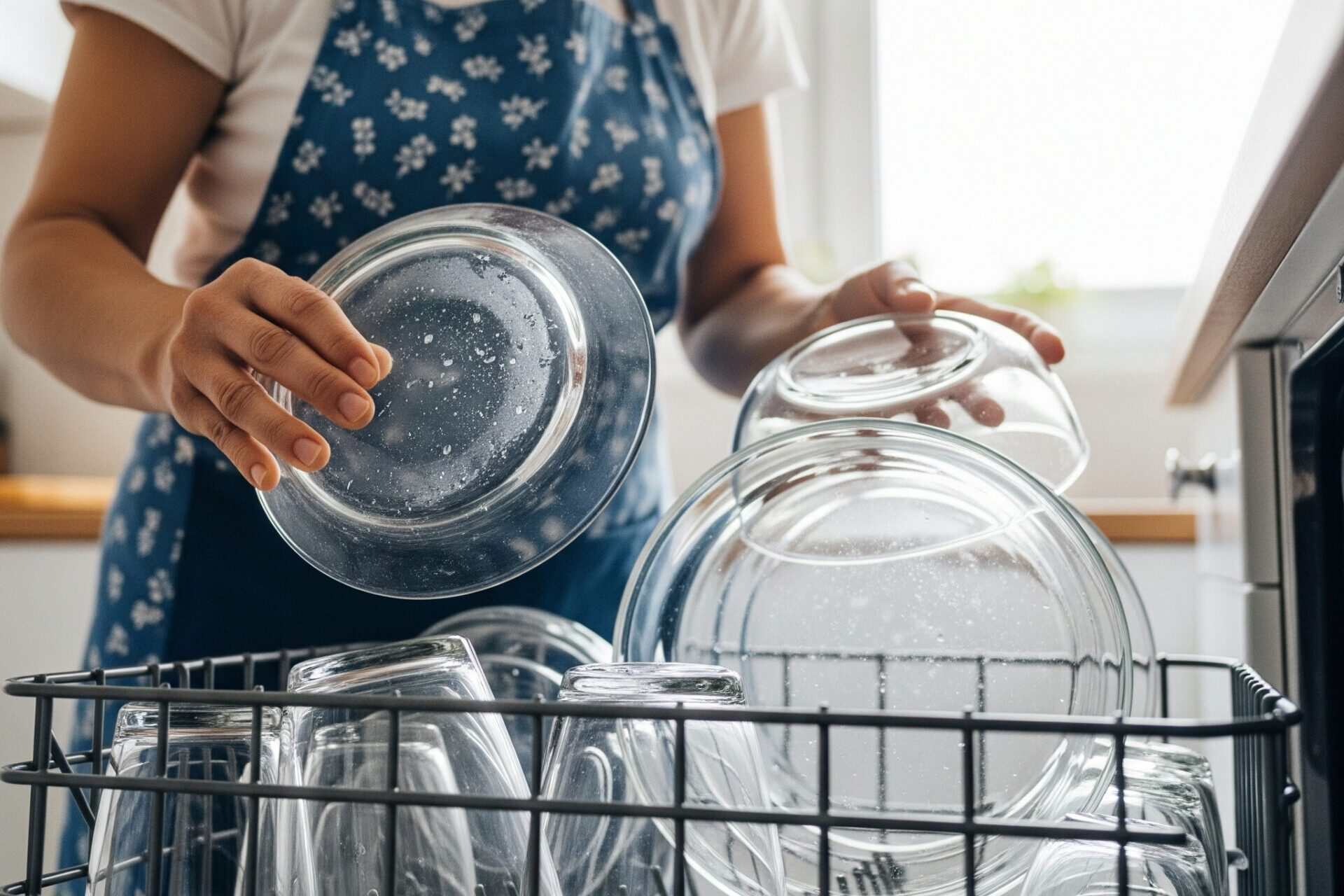
Question: What Happens If You Don’t Add Rinse Aid to Your Dishwasher?
Answer: If you don’t add rinse aid your dishes may have water spots and streaks, and dry more slowly. They might also come out not quite as clean.
The Importance of Rinse Aid: What Happens If You Don’t Use It?
Many people view rinse aid as an optional dishwasher extra. They believe their detergent alone cleans dishes effectively. This assumption often leads to several undesirable outcomes.
Understanding the function of rinse aid helps illustrate its importance. We will examine the science behind its effectiveness and dispel common misconceptions about its use. This article provides a clear picture of what happens inside your dishwasher, both with and without this essential additive.
Spotting and Streaking: The Most Visible Consequences
The most immediate consequence of omitting rinse aid is spotting and streaking on your dishes. Water droplets cling to the surface of dishes as they dry. These droplets contain dissolved minerals and food particles. As the water evaporates, these remnants remain, leaving behind unsightly spots and streaks.
Rinse aid lowers the surface tension of water. This action prevents droplets from forming and encourages sheeting. Water flows off the dishes quickly and evenly, leaving a clean, spot-free finish. This effect is especially noticeable on glassware, which tends to show spotting more prominently than other dishware.
Click here for more information on cabinet refinishing Toronto
Related Article: Do You Put Rinse Aid in the Dishwasher Every Time?
Related Article: What Can I Put in My Dishwasher Instead of Rinse Aid?
Food Particles
While detergent primarily targets food particles, rinse aid contributes to their complete removal. The sheeting action of rinse aid helps wash away small, lingering food particles that detergent might miss. These particles can become trapped in water droplets and dry onto dishes, leading to a less hygienic clean.
Rinse aid assists in achieving a more thorough clean by ensuring that all food particles, regardless of size, are effectively rinsed away. This combined action of detergent and rinse aid results in truly clean and sanitary dishes.
Dishwasher Longevity: A Hidden Benefit
Many people overlook the role rinse aid plays in maintaining the dishwasher itself. Without rinse aid, hard water deposits can accumulate inside the dishwasher, affecting its performance and lifespan. These deposits can clog spray arms and other components, reducing cleaning efficiency.
Rinse aid helps prevent these deposits from forming, keeping the dishwasher’s internal components clean and functioning optimally. This preventative measure can extend the life of your dishwasher and save you on costly repairs or replacements.
Rinse Aid Myths
Several misconceptions surrounding rinse aid discourage its use. Some believe it is merely a marketing ploy, while others worry about its chemical composition. These concerns often stem from a lack of understanding about how rinse aid works and its benefits.
The “Marketing Ploy” Myth
Rinse aid isn’t a ploy. It addresses a real problem: hard water. If you live in an area with hard water, rinse aid is practically essential for optimal dishwashing results. It is a vital component in achieving truly clean and sparkling dishes, particularly glassware.
The “Harmful Chemicals” Myth
Most rinse aids contain biodegradable surfactants, which are relatively safe for the environment. They break down quickly and do not persist in the water system. Always check the specific product’s ingredients for any sensitivities.
Conclusion – What Happens If You Don’t Add Rinse Aid to Your Dishwasher?
While detergent is undoubtedly vital for dishwashing, rinse aid plays a crucial, complementary role. It ensures dishes dry quickly and evenly, prevents spotting and streaking, and protects glassware from cloudiness. It also contributes to a more hygienic clean by removing small, lingering food particles and helps maintain the health and longevity of your dishwasher. Skipping rinse aid may seem like a small saving, but the consequences can be significant, impacting both the cleanliness of your dishes and the performance of your appliance.
By understanding the science behind rinse aid and dispelling common myths, you can make informed decisions about your dishwashing routine. Incorporating rinse aid into every wash cycle leads to consistently sparkling, spot-free dishes, a cleaner dishwasher, and ultimately, peace of mind knowing your dishes are truly clean.

Blue Malue Get in touch with Blue here.
